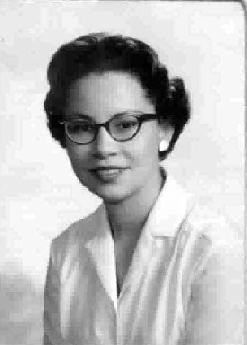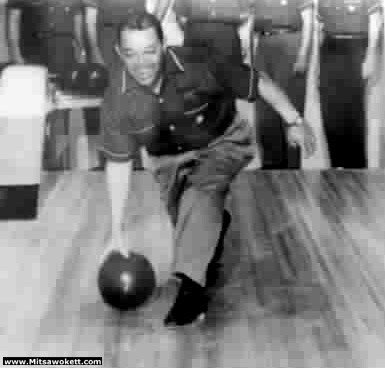Grace
Geneva Wilson Davis was born at home in Ridgely, Maryland, in 1909
to Howard Clifton and Bessie Mosley Wilson.. Home was a farm and
her family had farmed in the area for generations.
Grace's
journal has this to say about life 80 years ago: "I remember visiting
Grandfather and Grandmother Wilson on Sunday after church. We had
a horse and carriage and it was fun to ride over the dirt roads,
two of us sitting on the floor and the other one up with Mom & Dad.
I'll always remember grandma's hot biscuits and climbing on grandpa's
knees while we waited for dinner.
"My
mother worked too hard taking care of the family and helping Dad
in the field. As we were growing up we had to learn how to work
in both the house and the field too. My older brother Charlie would
care for me when Mom went out to work. I loved Charlie.
"At
Christmas we got one tiny toy. There was very little money so they
bought us clothes which we needed to wear. We got treats like an
orange, hard candy and nuts. But these were happy times with the
five of us together. (Grace had two brothers.)
"I
remember my father taking me on my first train ride to Wilmington
with a big steam engine puffing away. I couldn't wait to get back
home to tell my mother and my brothers about that trip.
"I
was just getting used to school when my grandfather Wilson took
sick and died. I remember the big horses drawing the casket instead
of in a car."
Life's
challenges were presented early to Grace. When she was 10, her mother
contracted tuberculosis. "In August, 1919, my mother called us into
her bedroom, one at a time. Charles was first, then me and then
Howard. This was one day in my life where I hope I will never forget
those loving kind words that Mother wanted me to know and to do.
She died shortly after. Her death changed our whole lives."
After
the death of her mother in 1919, her father sold the farm and the
family removed to Cheswold, Delaware where he took a job for wages.
He couldn't care for three young children. They went to live with
relatives until he married his wife's sister, Mabel Mosley, the
following year.
Four years after her mother died, her older brother Charlie, who
she had dearly loved, came down with typhoid fever and died. "His
last words were, 'Grace, here's Mom, she's come for me.' This sort
of frightened me and I said, 'No, I don't see her,' and he pointed
to the foot of the bed and again said, 'There she is,' and passed
away. He was such a good brother, and so young to die, only 15,
but I know now that he is with Heavenly Father and his parents and
we will be together someday.
"When
I was about nineteen my parents decided I could get a job if I wanted
to and I'll never forget it. I went to work for Mrs. Boyce. She
knew my family and she paid me $3.00 a week. After many weeks of
work I had enough to go shopping. I bought a new dress, shoes and
a bag and after more weeks of work I bought a new coat. When I think
back now about the colors I can't believe what I bought then: a
bright pink dress and a burgundy coat. But I was so happy with them.
Before I wore them I would go look at them hanging in the closet."
Wilson
Seville Davis was born August 18, 1912 at Clayton, Delaware, son
of William Henry and Orda Durham Davis. Grace met Wilson Davis at
the end of the 1920's. Wilson Davis' family lived on farm next to
the Wilson's residence. Their acquaintanceship became dating and
then marriage. They both agreed on this: they wanted no part of
farming life or its work or its messes or its odors. Wilson Davis
always said he was blessed beyond words when Grace agreed to marry
him. Wilson was an extremely hard worker and the two to set out
to make a life together. Two years after her 1934 marriage to Wilson
S. Davis, they moved to Wilmington, DE where they resided and worked
for over 40 years.
But
life in the early years was tough. Their daughter, Betty, had to
live with a relative in Philadelphia for a couple of years as they
struggled with the low wage jobs available during the depression.
Grace was very distressed to have Betty living away from her, especially
after visits when they both would cry at parting. Hard work by Wilson
and Grace united the family in the mid 1930's.
During
World War II, Grace made nylon for parachutes at the DuPont Company.
After the war she and her husband operated a small restaurant in
Wilmington, after which she worked until retirement as a pastry
cook for Tower Hill School in Greenville, DE. Many a student was
pleasured by her delicious sticky buns! In her leisure hours she
enjoyed sewing, knitting, crocheting and growing beautiful flowers.
Wilson
became the sexton of Christ Church at Greenville, Delaware for over
30 years and retired from that job in 1978 to reside at Bishop's
Corner and later Dover with his wife. Wilson was a member of many
bowling leagues in Wilmington and rolled three 300 games. He was
inducted into the Wilmington Bowling Association Hall of Fame on
October 21, 1989. He was instrumental in the integration of Wilmington
area bowling alleys in the 1950's prior to the great national debate
over this issue. He was also a self-taught master woodworker and
created a bed, coffee tables and a flag pole with bowling motifs.
A walnut dining-room table he created from the remains of a black
walnut tree whch had been sold by Christ Church to a lumberman is
a work of art.
Continuing
from Grace's journal: "Wilson said when we were first married he
had a plan set up where we could visit every state and we did every
state except Alaska, some states more than once." Wilson was
a traveller and Grace loved to take care of her nest, but true to
her sweet nature she would go on the road with him all over the
United States and Canada. In 1964 they travelled to Hawaii to visit
with Betty and her husband.
When
Wilson became addicted to bowling and became a championship bowler,
rather than going on being alone in the evening, Grace learned bowling
-- to become one of the best on her team. She wrote, "A long time
after we were married I didn't bowl but finally I gave it a try
and I enjoyed it so much that I even bowled a couple of years after
Wilson had to give it up."
Iin
1961, while on a trip out west they were sight-seeing through Idaho
and noticed an awe-inspiring building. They went to investigate.
It was the Idaho Falls Temple. When they went into the visitor's
center they were warmly greeted and knew after viewing films and
having discussions that the Gospel of Jesus Christ was what they
needed in their lives. Grace says in her journal that their baptism
was the greatest thing ever to happen in their lives. "I am most
proud first of having loving and kind parents and grandparents.
And to have a home where family and friends come to visit, the Gospel
in our lives and to serve in our Washington Temple and I like to
help others -- do nice things for them and to visit the sick."
Health
problems forced them to move to their daughter’s home in Beltsville,
MD in 1992. They celebrated their 60th wedding anniversary Apr.
18, 1994 together with the three generations they had a hand in
creating. Shortly after their 60th wedding anniversary, Wilson passed
away, May 31, 1994.
Grace
died at home from the effects of Alzheimer’s Disease early Thursday
morning, July 22, 1999, 12 days shy of her 90th birthday. Surviving
her were daughter Betty; five grandchildren, Elizabeth G. Terry
of San Francisco, William W. Terry of Springville, Utah, Frances
Terry Phillips of Columbia, Maryland and Ellen Terry Reichard and
David J. Terry of Beltsville, MD; eight great-grandchildren, Zachary,
Aaron and Seth Terry, Thomas and Meghan Phillips, and Lauren, Abby
and David Reichard; two sisters, Elizabeth Davis of Hartly, Delaware
and Mae Collins of Cheswold, Delaware; a godchild, Colette Carney
Wheatley of Dover, and many relatives and friends.
W.L.
"Bill" Stradley, 'Mr. Bowling" of Delaware, takes issue with some
of the facts expressed by W. Thomas Braxton in my March 14 column:
"Braxton recalls rolling through difficult times."
Braxton
noted black bowlers in Delaware, as late as the late 1950s, were
denied access to lanes in the First State. "Not until about 1960
did any bowling proprietors in Delaware take the initiative to allow
blacks to bowl competitiively in their establishments," Braxton
was quoted as saying. "Other than the Walnut Street Y, which had
four lanes, blacks were barred from bowling in any Delaware establishment."
"Braxton
did not have all his facts correct," writes Stradley, a Wilmington
Bowling Association Hall of Fame charter member, who has been a
member of the WBA board since 1950. "He [Braxton] states that John
Scott at First State was the first to admit blacks in 1960. I am
attaching a photo copy of the WBA's 12th tournament held in 1952
at the Parkway Bowling Academy, then managed by Jack and Bobby Tigani.
I have circled in red the names of the black bowlers [Thomas Chase,
Leo Tolliver, Freddie Wing, Fletcher White, Noah Daniels, Oria Obyrant,
Wilson Davis, William Fleming] who bowled in that 1952 tournament.
Most names appeared in your column.
"Also," adds Stradley, who is president of the Delaware State Men's
Bowling association and has been the secretary of the WBA since
1969, "you listed the name of Bob Fleming. If my memory is correct,
his name was William with the nickname of 'Boob' and he was in charge
of the 'Monday Club' that was, I think, on French Street, between
6th and 7th.
"You
will notice the name of Wilson Davis, and I want to explain as best
as I can remember. I believe that this man was of the black race
but had a really tough time of being accepted by both blacks and
whites. As I remember the story, he was called ' a 'Moor,' and I
believe he was from the Smyrna area. I am also certain that he bowled
in the 1950s in City Alleys on Tatnall Street. I have proof that
he rolled a 300 game on Sept. 27, 1957, and it was at City Alleys.
"Mr. Davis, along with his brother, Robert, was a caretaker at the
Christ Church in Greenville." Stradley said he read the March 14
column with "great interest, since I knew personally most everyone
who was mentioned, and it brought back many fine memories of those
in your column." Stradley wanted it made known that his intention
is "not to open a can of worms, but is to let you know that Braxton
did not give you all correct items."













%201998-2002.jpg)
